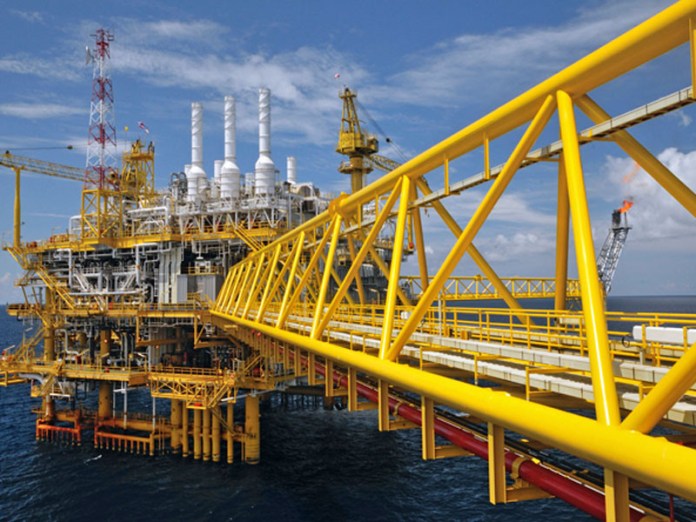- Oil Companies Cut Upstream Expenditure by $100bn in Five Years
Capital expenditure (Capex) in the oil and gas industry in sub-Saharan Africa has been cut by $100 billion over the next five years, according to Wood Mackenzie’s latest report on upstream activity in the region.
The new report revealed that deepwater has suffered the deepest Capex cuts due to its high breakeven price relative to other sectors and identified Nigeria and Angola as having endured the worst of these cuts.
As a result, Wood Mackenzie predicted that sub-Saharan African liquids production will decline to 2.6 million barrels a day by 2030, from 4.8 million barrels a day presently.
While acknowledging that the giant Owowo discovery made by ExxonMobil in deepwater Nigeria shows the quality of resources Sub-Saharan Africa still has to offer but added that the major oil companies that heavily invested in Sub-Saharan Africa account for the bulk of the capex cuts.
For operators with deep pockets, the report identified Mozambique, Angola and Nigeria as leaders in upstream mergers and acquisitions (M&A) opportunities.
The report however noted that the M&A market has slowed down as buyers and sellers are unable to align on asset values due to oil price volatility.
According to the report, “deal activity may see an uptick if prices remain low for longer, as companies opt to divest non-core assets.”
Wood Mackenzie further revealed that exploration cuts will contribute to 46 per cent oil production decline by 2030, adding that governments in Sub-Saharan Africa need to revive the industry with attractive fiscal terms.
The report described East Africa’s emergence as a major global gas region as the industry’s biggest recent success in Sub-Saharan Africa Speaking on the report, the Senior Research Manager for Sub-Saharan Africa at Wood Mackenzie, Mr. Femi Oso stated that exploration cuts in the region would lead to long-term slump in crude oil production.
“Exploration cuts in the region will also contribute to a longer-term production slump as explorers have shied away from greenfield prospects, in favour of appraising known discoveries. However, the confirmation of the giant Owowo discovery in deepwater Nigeria shows the quality of resources that Sub-Saharan Africa still has to offer,” Oso added.
Wood Mackenzie expects a slow recovery for exploration, adding that operators will benefit from cost deflation and will improve efficiency through streamlining project design.
“Governments in Sub-Saharan Africa need to revive the upstream oil and gas industry by offering attractive fiscal terms rather than look to increase state revenues in the current climate,” Oso added.
Wood Mackenzie described East Africa’s emergence as a gas region of global importance as the biggest upstream success story in Sub-Saharan Africa.
“With over 168 trillion cubic feet of gas found and limited regional demand, East Africa is on track to become a major global LNG supplier and various export projects are awaiting final investment decision,” said the report.
According to Wood Mackenzie’s research, Mozambique and Tanzania gas project economics are resilient and will “transform the global LNG market”.
“Mozambique and Tanzania’s LNG projects have remained relatively unscathed by cuts and will be timed to align with global LNG demand growth to achieve a better price,” Oso said.
“The projects will appeal to buyers looking to diversify their portfolios and BP has already committed to offtake all volumes from Eni’s Coral FLNG,” he added.
“The expected increase in gas production in Sub-Saharan Africa, from 6 billion cubic feet a day (bcfd) currently to 13 bcfd next decade, is very good news for the region,” Oso explained.
The report acknowledged that onshore LNG plants remain the preferred way to monetise gas, although liquefaction via third-party-owned floating liquefied natural gas (FLNG) vessels is emerging as a simpler and less expensive alternative.
“Floating storage regasification units (FSRU) and piped gas supply to the power sector will play an increasingly important role in the longer term as domestic markets develop from their very low base. An FSRU is a floating LNG import terminal,” Wood Mackenzie added.


 Billionaire Watch3 weeks ago
Billionaire Watch3 weeks ago
 Startups4 weeks ago
Startups4 weeks ago
 News4 weeks ago
News4 weeks ago
 News4 weeks ago
News4 weeks ago
 Bitcoin4 weeks ago
Bitcoin4 weeks ago
 Naira4 weeks ago
Naira4 weeks ago
 Forex3 weeks ago
Forex3 weeks ago
 Treasury Bills4 weeks ago
Treasury Bills4 weeks ago
























